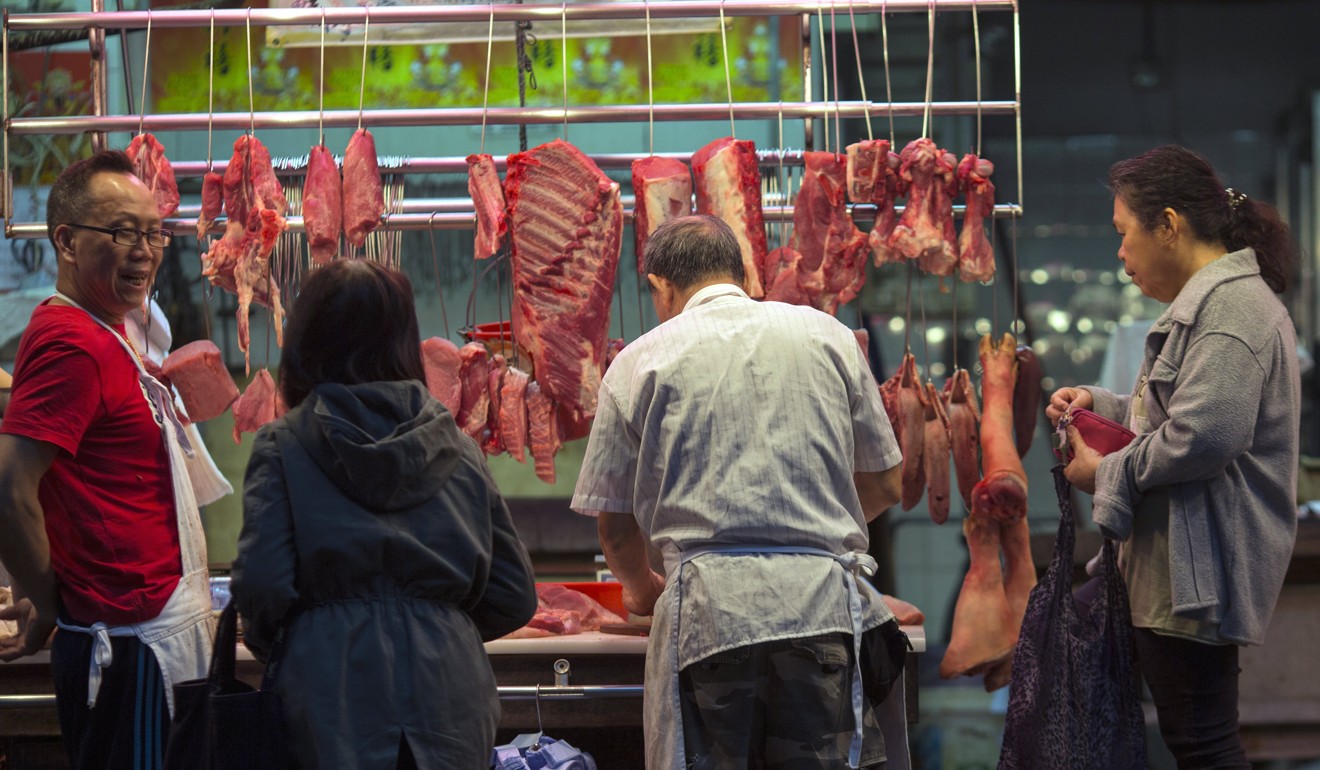
New meat-free dumplings could help fight global warming, says Hong Kong’s Green Monday
Omnipork, made of shiitake mushroom, rice and pea protein, is intended to provide an alternative to meat, and in doing so reduce the greenhouse gases that come from meat production
A new range of meat-free dumplings have been created by Canadian scientists and Hong Kong climate campaigners in the hope of persuading the world’s biggest carnivores to stop pigging out – and in doing so help save the environment.
China eats more meat than any other nation – twice the amount consumed by Americans alone – and a campaigning Hong Kong business is launching a more sustainable, plant-based diet that it says has less impact on global warming.
Meet the five vegan influencers leading the green movement into China
“Just to tell people what not to do is not going to solve the problem. You’ve got to give them alternatives,” said David Yeung, founder of Green Monday, which campaigns for people to ditch meat at least once a week.
“Climate change, water scarcity, food insecurity, these are mega, giant problems. The easiest way to help the planet is to reduce meat consumption,” Yeung said.

Omnipork is made of shiitake mushroom, rice and pea protein, the new food will initially only be available in prepared dishes such as dumplings and a traditional Asian dish of dan dan noodles.
It will be launched in Green Monday’s six Green Common food stores, all in Hong Kong, at the beginning of June, and is the organisation’s first food product.
As well as running grocery stores, the social enterprise has an online directory of restaurants with vegetarian menus and has invested in Beyond Meat, a California-based firm that produces a burger made from plants.
Bar owner Jay Khan on his go-to Hong Kong restaurants and bars
Yeung said it took Canadian food scientists about 18 months to achieve the right texture, moistness and taste that means the product is “almost indistinguishable” from real pork.
Scientists attribute nearly 15 per cent of global greenhouse gases to meat production.
The industry is the largest driver of global environmental change because of feed production, land use and methane emissions, according to the Food and Agriculture Organisation (FAO).

China consumes a lot more meat than any other country.
People ate about 74 million tonnes of pork, beef and poultry in 2017, about twice as much as the United States, according to US government estimates.
Omnipork is the latest alt-meat product aimed at carnivores that are open to ethical alternatives that have less environmental fallout.
Nearly three quarters of consumers globally are limiting or avoiding meat altogether, according to GlobalData, a data analysis company that surveyed nearly 27,000 people in 36 countries, including China.
“The shift toward plant-based foods is being driven by millennials, who are most likely to consider the food source, animal welfare issues, and environmental impacts,” Fiona Dyer, a consumer analyst at GlobalData, said in a statement.
